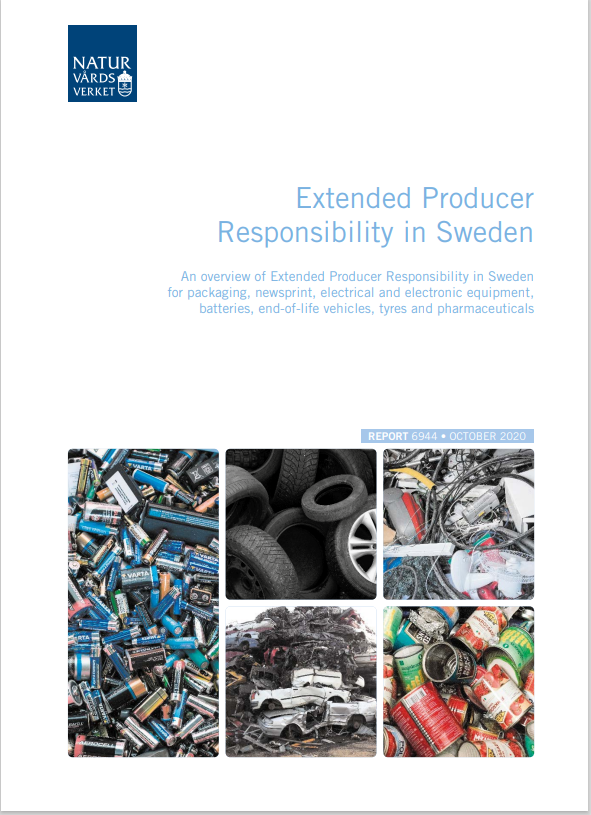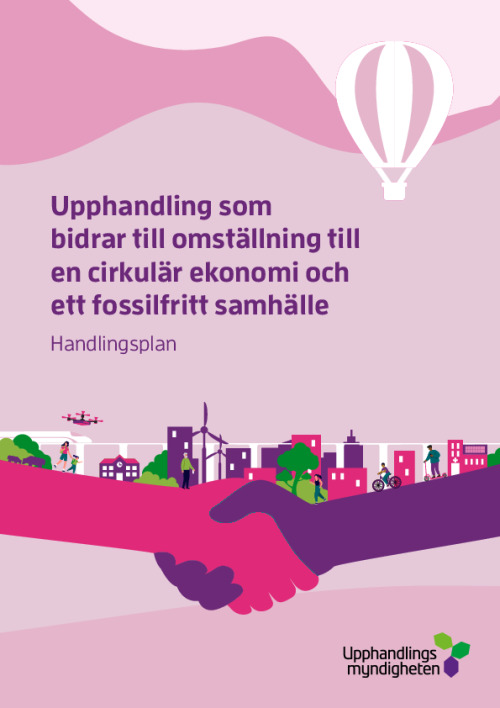Extended Producer Responsibility in Sweden
An overview of Extended Producer Responsibility in Sweden for packaging, newsprint, electrical and electronic equipment, batteries, end-of-life vehicles, tyres and pharmaceuticals.
This report is a general account of different aspects of the Extended Producer Responsibility (EPR) for packaging, newsprint, electrical and electronic equipment (EEE), batteries, end-of-life vehicles, tyres and pharmaceuticals in Sweden. In addition, the final chapter of this report is dedicated to reflecting on the success of the Swedish EPR schemes and possible improvements.
In Sweden, the producers have ownership of the material, the infrastructure and the financing of the EPR scheme. The legislation, through ordinances for each EPR scheme, places the responsibility for the proper end-of-life management of waste products on the individual producers. However, in practice most producers work collectively to exercise this responsibility by setting up or affiliating themselves with Producer Responsibility Organisations (PROs).
The legislation mandates that collection systems, except for professional EEE, batteries and tyres, must have national coverage in order to give the entire Swedish population access to the systems. For producers of consumer EEE it is mandatory to be part of an authorised nationwide collection system. The same requirements will apply for packaging and newsprint in the future. Producers of batteries and professional EEE are required to be part of a collection system that does not need to have nationwide coverage. For pharmaceuticals another arrangement applies where individual pharmacies are required to take back proportionate amounts of discarded pharmaceuticals from households.
Most PROs in Sweden operate as not-for-profit companies, owned by individual producers or trade organisations within their respective EPRs. None of the organisations have a legislative monopoly but all operate on an open market. For some product groups there is, therefore, competition between the different PROs, namely for packaging waste and waste from electrical and electronic equipment (WEEE). Depending on the product group, the EPR schemes are financed by product fees that are added onto the retail price and/or income from sales of the recycled material. These financial transactions are, for most EPR schemes, administered by the individual PROs.
The EPR ordinances regulate the responsibility of the municipalities to inform the public about available collection systems for packaging, newsprint, WEEE and end-of-life vehicles. Regarding EPR for tyres and pharmaceutical waste, the municipalities have no defined responsibility to inform the public of available collection systems. Municipalities inform the public about collection systems for batteries in consultation with the producers.
The levels of collected and recovered (recycled) materials are relatively high and for many product groups, EPR specific targets are met or exceeded. In general, the producers have a well organised infrastructure for collection and recycling of EPR type of waste. Most PROs collaborate with the Swedish municipalities to enable households to easily drop off EPR products once they become waste.




